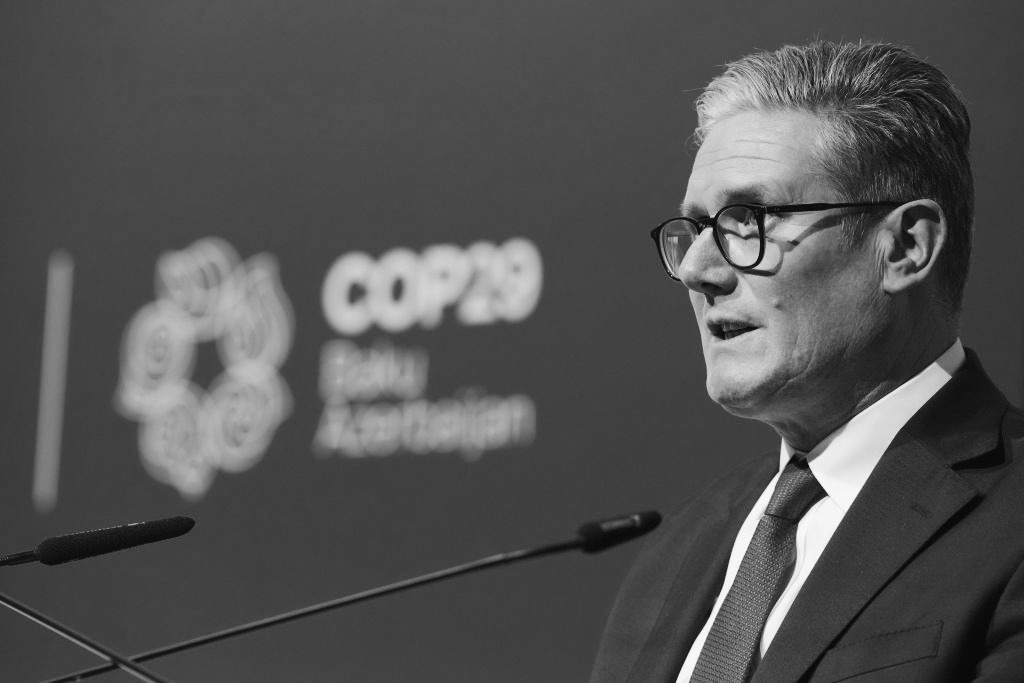In the near three-decade history of the annual round of UN climate conferences, the Baku Cop29 stands out. There have been disastrous Cops before. For those with long memories, there was Cop6 in the Hague after George W. Bush narrowly won the 2000 presidential election, which was disrupted by protestors and the outgoing American climate negotiator had a cake thrown at him. Then there is the Copenhagen Cop15, when the Global South, led by China, India, Brazil and South Africa, sunk a binding climate treaty that would have required them to cap their emissions. But never before has there been the indifference and mass absenteeism that marks the Baku Cop.
The choice of Azerbaijan to host the talks was always going to be challenging. Being an oil producer did not disqualify Dubai from skilfully running last year’s Cop. But the brutal ethnic cleansing of Nagorno-Karabakh last year and President Ilham Aliyev’s long-standing denial of the Armenian genocide proved too much even for a UN climate conference where white-washing and hypocrisy are the order of the day. Ironically, it was the Paris Cop21 in 2015 – widely seen as the crowning achievement of the UN climate talks – that drained the drama from all subsequent Cops.
Telling the truth about the price tag of net zero is tantamount to killing it
Under the Paris climate agreement, the process moved from countries sitting around the conference table negotiating emissions targets to countries submitting their own targets – or deciding not to have any targets at all – in the form of five-yearly Nationally Determined Commitments (NDCs). Unsurprisingly, the Paris agreement failed to bring about a peaking of global greenhouse gas emissions. In 2015, global emissions of carbon dioxide were 35.4 billion tonnes. In 2023, they had risen to 37.79 billion tonnes – an increase of 6.75 per cent – with little sign, despite the UK and EU delivering massive emissions reductions, that global emissions are close to peaking.
The outcome of the Paris agreement’s system of NDCs is that Cops have become talking shops devoted primarily to two issues: standardising the reporting of greenhouse gas emissions, a yawnathon if ever there was one, and money – how much of it the West should give the Global South. In an FT article last week, Christine Lagarde, the president of the European Central Bank, cited UN estimates that the energy transition required to meet net zero needs up to $11.7 trillion a year, equivalent to 10 percent of world output. Our economic survival depends on unlocking trillions of dollars of green capital, Lagarde argues. This is a nursery-school level of thinking about finance. The world’s second most powerful central banker appears to think there are trillions of dollars of unused capital lying around in someone’s cellar. What Lagarde really means, but lacks the honesty to say, is that net zero requires diverting a vast amount of capital from being deployed in productive investments where they earn a higher return than on so-called green ones.
But telling the truth about the price tag of net zero is tantamount to killing it. The one world leader who has grasped the dire economic consequences of net zero is Donald Trump, whose election is already accelerating the Cops’ slide into irrelevance. Having withdrawn the United States from the Paris agreement in his first term, Trump is promising to do so again in his second. This provoked a bizarre response from ExxonMobil’s CEO, Darren Woods. Speaking in Baku, Woods complained that pulling out would ‘leave a void with respect to what the Trump administration could bring to this process.’ This echoes the view of Woods’s predecessor, Rex Tillerson, who, before being fired as Trump’s first secretary of state, argued that staying in would enable the Trump administration to renegotiate the terms of the Paris agreement.
This shows how little Tillerson understood. The only renegotiation that would have relieved the US of the legal commitment to submit an NDC with ever more stringent emissions targets every five years would mean gutting the agreement. Renegotiation wasn’t going to happen. The whole point of the US exiting the Paris agreement is to leave a void, so that the US is not obligated to submit another NDC or hand over more American taxpayers’ money to the Global South. Trump’s views are evidently shared by Argentina’s President Javier Milei, who ordered his country’s climate negotiators to leave the Cop.
These developments left Keir Starmer looking an increasingly forlorn figure at Baku, where he presented Britain’s NDC for 2035, which would see an 81 per cent cut in emissions. ‘Our goal of 1.5C… Is aligned with our goals for growth,’ the Prime Minister declared. In just 11 words, the Prime Minister shows himself doubly deluded. The following day, Oslo-based climate researcher Glen Peters said that the remaining carbon budget to limit warming to 1.5C is ‘so small that it almost makes no sense anymore.’
On net zero being good for growth, Starmer should have a quiet word with Ed Miliband, as his net zero minister knows the truth. When Miliband was doing the same job under Gordon Brown, on 9 March 2009, he signed an impact assessment on the Climate Change Act’s 80 per cent target. ‘I am satisfied that, given the available evidence, it represents a reasonable view of the likely costs, benefits and impact of the leading options,’ Miliband certified on the first page of an impact assessment. In a paragraph near the top of the document, it reads: ‘Where the UK acts alone, though there would be a net benefit for the world as a whole the UK would bear all the cost of the action and would not experience any benefit from reciprocal reductions elsewhere. The economic case for the UK continuing to act alone where global action cannot be achieved would be weak.’ The prime minister should heed that warning and withdraw the UK’s NDC before net zero does even more damage to the dangerously fragile British economy.







Comments